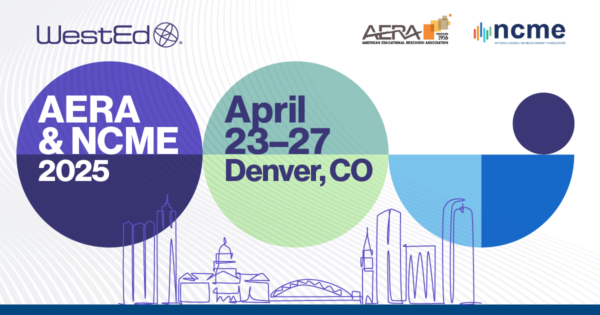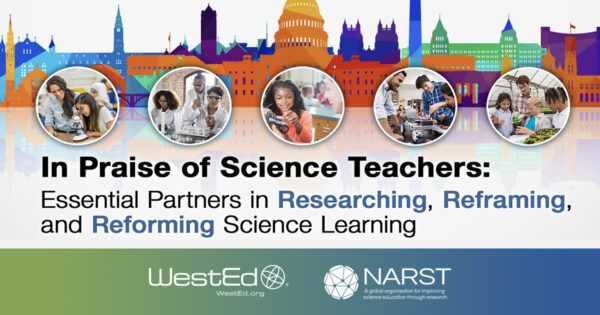Overview
Sharon Nelson-Barber is a national expert in Indigenous education. Her research centers on understanding how the sociocultural contexts in which students live influence the ways in which they make sense of schooling. Nelson-Barber—working side by side with other Indigenous researchers whose communities span the United States, Micronesia, and areas of Polynesia—also explores how aspects of cultural knowledge can become visible in assessment and evaluation to ensure that schooling is equitable for all students. She conducts original research and has partnered with state education leaders to lead applied research projects and technical assistance that informs policy and practice decisions such as the weighting and using of different teacher effectiveness measures and designing and implementing evidence-based strategies to effectively support and develop educators.
For 10 years, Nelson-Barber participated in the Laboratory Network Program’s Indigenous Education Collaborative (IEC), a national group connected to the system of regional educational laboratories (RELs); the IEC is charged with identifying and connecting appropriate education services to tribal communities across the country. The Indigenous Education State Leaders Network continues these efforts through the Comprehensive Center Network where, via the West Comprehensive Center, Nelson-Barber worked closely with state and local education leaders in Arizona, Nevada, and Utah, providing technical assistance to improve outcomes for Native learners. These programs, together with her ongoing collaborations with national Native organizations, helps WestEd maintain important community connections and keeps WestEd’s work timely and relevant to our partner populations.
She regularly works in partnership to conduct research with other Indigenous researchers and educators, both nationally and internationally. Before joining WestEd, Nelson-Barber was a Visiting Scholar at Stanford University’s Center for the Comparative Study of Race and Ethnicity. As president and CEO of Pacific Resources for Education and Learning—a research, development and service agency serving the Pacific region—Nelson-Barber has led applied research projects and technical assistance (e.g., REL Pacific, Pacific Comprehensive Center) serving the U.S.-affiliated Pacific Islands and Hawaiʻi, informing policy and practice decisions.
Education
- Postdoctoral Fellow in language, literacy and culture, Stanford University
- EdD in human development, Harvard University
- EdM in human development, Harvard University
- MS in disorders of communication, University of Vermont
- BA in Russian language and civilization, Mount Holyoke College
Select Publications
Nelson-Barber, S. & Trumbull, E. (forthcoming). Assessment for social justice with a focus on American Indigenous students. In R. Bennett, L. Darling-Hammond, & A. Badrinarayan (Eds.), Socioculturally responsive assessment: Implications for theory, measurement, and systems-level policy. New York: Taylor & Francis.
Nelson-Barber, S., Boxerman, J., Johnson, Z, Silberglitt, M., & Trumbull, E. (forthcoming). The culture factor: Paths to culturally relevant education for teachers and learning communities. International Review of Education.
Chinn, P. & Nelson-Barber, S. (Eds.). (2023). Cultural studies of science education. Indigenous STEM Education: Perspectives from Pacific Islands, Pacific Rim, and SE Asia, Vols I &II. New York: Springer.
Nelson-Barber, S., Hill, D., Nayak, P. & Nxumalo, F. (2022) We want our children to survive: An interview with Sharon Nelson-Barber, Curriculum Inquiry, 52(2), 139–149, https://doi.org/10.1080/03626784.2022.2052639
Nelson-Barber, S., Johnson, Z., Boxerman, J., & Silberglitt, M. (2022). Using context-adaptive research methods to address pedagogical challenges in Indigenous citizen science. In M. Atwater (Ed.). Handbook of Multicultural Science Education. (pp.1–28). New York: Springer.
Nelson-Barber, S., Johnson, Z., Silberglitt, M., Boxerman, J., Hanohano, K., Tong, E., Chan, Y., & O’Connor, S. (April, 2020). Indigenous mapping: Culturally relevant, technology-enhanced teaching strategies for Indigenous learners and the public good.
Nelson-Barber, S. (2020). Foreword. In Nicol, C., Archibald, J., Glanfield, F., & Dawson, S. (Eds.). Living Culturally Responsive Mathematics Curriculum and Pedagogy: Making a Difference with/in Indigenous Communities (pp. xi–xvii). Boston: Brill Sense.
Nelson-Barber, S., & Johnson, Z. (2019). Case Studies. In McKinley, E., & Tuhiwai Smith, L. (Eds.). Handbook of Indigenous Education (pp. 1103–1112). New York: Springer.
Nelson-Barber, S., & Johnson, Z. (2019). Raising the standard for testing research-based interventions in Indigenous learning communities. In Tom, M., Sumida, E., & McCarty, T. (Eds.). Indigenous knowledges and learning: Vital contributions towards sustainability, International Review of Education, 65, 47–65. https://doi.org/10.1007/s11159-018-9756-4
Trumbull, E., & Nelson-Barber, S., (June 2019). The ongoing quest for culturally-responsive assessment for Indigenous students in the US., Frontiers in Education, 4, 1–11. https://doi.org/10.3389/feduc.2019.00040
Nelson-Barber, S. & Johnson. Z. (2016). Acknowledging the perils of “best practices” in an Indigenous community, Contemporary Educational Psychology, Special Issue on Indigenous Issues in Education and Research: Looking forward, 47, 44–50.
Trumbull, E., Sexton, U., Nelson-Barber, S. & Johnson, Z. (2015). Assessment practices in schools serving American Indian and Alaska Native students, Journal of American Indian Education, 54(3), 5–30.
LaFrance, J., Nelson-Barber, S., Rechebei, E., & Gordon, J. (2015). Partnering with Pacific communities to ground evaluation in local culture and context: Promises and challenges. In S. Hood, R. Hopson, & H. Frierson (Eds.), Continuing the journey to reposition culture and cultural context in evaluation theory and practice (pp. 361–378). Charlotte, NC: Information Age Publishing.
Greer, B., Mukhopadhyay, S., Powell A., & Nelson-Barber, S. (Eds.) (2009). Culturally Responsive Mathematics Education. Mahwah, NJ: Taylor and Francis Group
Moschkovich, J. & Nelson-Barber, S. (2009). What math teachers need to know about culture and language. In B. Greer, S. Mukhopadhyay, S. Nelson-Barber, & A. Powell (Eds.). Culturally Responsive Mathematics Education (pp. 125–150). Mahwah, NJ: Taylor and Francis Group.
Nelson-Barber, S. & Lipka, J. (2008). Rethinking the case for culture-based curriculum: Conditions that support improved mathematics performance in diverse classrooms. In Brisk, M. (Ed.), Language, Curriculum & Community in Teacher Preparation (pp. 99–123). Mahwah, NJ: Lawrence Erlbaum Associates, Inc.
Nelson-Barber, S. & Trumbull, E. (2007). Making assessment practices valid for Native American students, Journal of American Indian Education, 46(3), 132–147.
Solano-Flores, G., & Nelson-Barber, S. (2001). On the cultural validity of science assessments, Journal of Research in Science Teaching 38, 1–21.
Honors, Awards, and Affiliations
Elizabeth Topham Kennan Award for accomplishments in the field of Education. Mount Holyoke College. 2024.
Nomination for American Educational Research Association Book Award: Chinn, P. & Nelson-Barber, S. (Eds.), Cultural studies of science education. Special issue on Indigenous STEM Education: Perspectives from Pacific Islands, Pacific Rim, and SE Asia, Vols 1 & 2. New York: Springer. 2024.
Ed Meyers Award for exceptional contribution to the WestEd Community. WestEd. 2021.
EdTalk: Educating students with benefit of Indigenous knowledge. Annual meeting of the American Educational Research Association, Washington, DC, April, 2016.
American Educational Research Association, Scholars of Color in Education Award in Recognition of a Distinguished Scholar. 2013
American Educational Research Association, G. Mike Charleston Award for Distinguished Contribution to Research in Indigenous Education. Indigenous Peoples of the Americas. 2013.
American Educational Research Association Publications, American Educational Research Journal Section on Teaching, Learning and Human Development, Outstanding Reviewer. 2012.
Paul D. Hood Award for distinguished contribution to the field. WestEd. 2006.
American Book Award: Transforming the Culture of Schools: Yup’ik Eskimo Examples, 1998 Hillsdale, NJ: Lawrence Erlbaum, edited by J. Lipka, et al., in which my chapter: “Don’t act like a teacher!: Images of effective teaching in a Yup’ik Eskimo classroom” appears. 1999.












